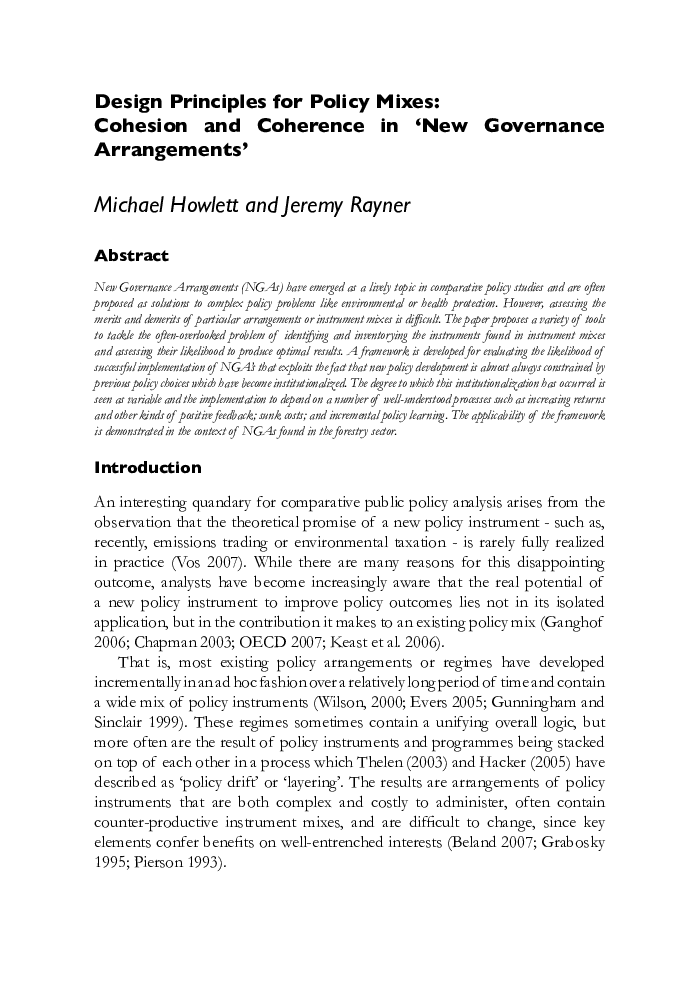| Article ID | Journal | Published Year | Pages | File Type |
|---|---|---|---|---|
| 1061763 | Policy and Society | 2007 | 18 Pages |
New Governance Arrangements (NGAs) have emerged as a lively topic in comparative policy studies and are often proposed as solutions to complex policy problems like environmental or health protection. However, assessing the merits and demerits of particular arrangements or instrument mixes is difficult. The paper proposes a variety of tools to tackle the often-overlooked problem of identifying and inventorying the instruments found in instrument mixes and assessing their likelihood to produce optimal results. A framework is developed for evaluating the likelihood of successful implementation of NGA's that exploits the fact that new policy development is almost always constrained by previous policy choices which have become institutionalized. The degree to which this institutionalization has occurred is seen as variable and the implementation to depend on a number of well-understood processes such as increasing returns and other kinds of positive feedback; sunk costs; and incremental policy learning. The applicability of the framework is demonstrated in the context of NGAs found in the forestry sector.
